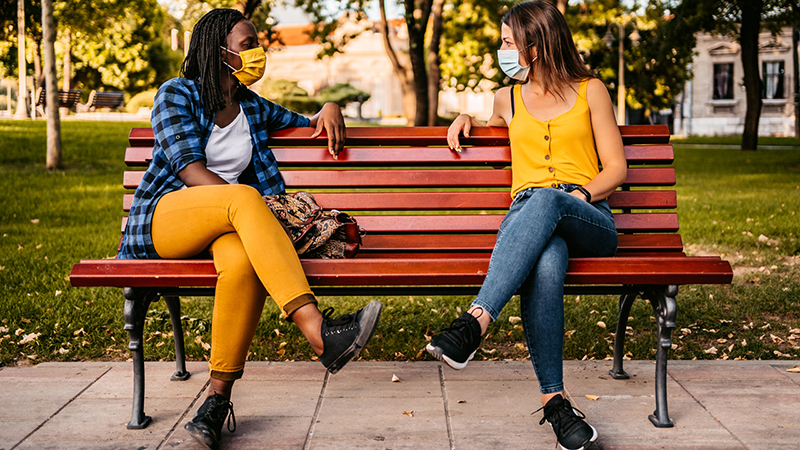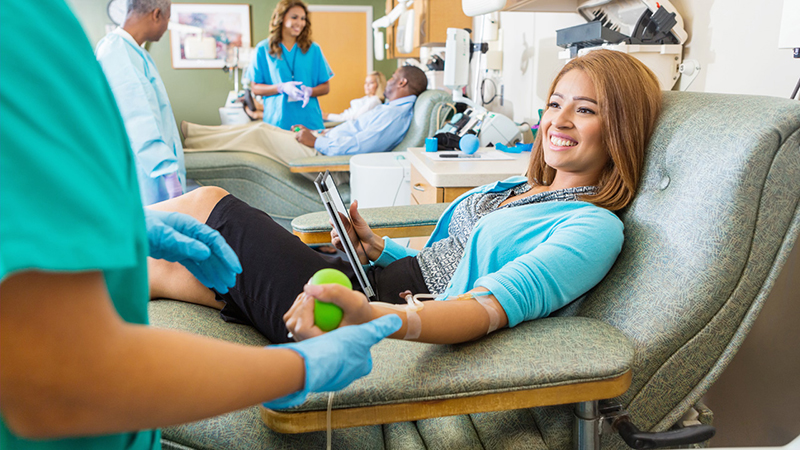COVID-19 Vaccines and Pregnancy
3 Facts You Need to Know
Updated May 2022
Some pregnant women may be hesitant to get a COVID-19 vaccine. However, research suggests that the vaccines offered in the United States are safe and effective at preventing serious complications caused by COVID-19. Serious adverse events have been uncommon, and occurred at similar rates in vaccine and placebo groups in clinical trials conducted by the Food and Drug Administration.
Here are three facts you need to know about pregnancy and COVID-19 vaccines.
There are no data to even suggest that COVID-19 vaccines will cause infertility.— Eve C. Feinberg, MD name
Fact: COVID-19 vaccines have not been shown to cause infertility.
"There are no data to even suggest that COVID-19 vaccines will cause infertility," says Eve C. Feinberg, MD, a reproductive endocrinologist and infertility specialist at Northwestern Medicine.
The origin of this myth is a letter sent to the European Medicines Agency (the equivalent of the U.S. Food and Drug Administration [FDA]) by two European scientists who falsely claimed that the "vaccine contains a spike protein called syncytin-1 [that is] vital for the human placenta in women."
"Syncytin-1 is indeed vital for the human placenta. Destruction of this protein would disrupt its formation, leading to infertility or miscarriage," says Dr. Feinberg. "But the claim that COVID-19 vaccines either contain syncyntin-1 or tell your body how to create the antibodies to fight against syncytin-1 is false."
Fact: Pregnant women are at higher risk for serious illness from COVID-19.
Pregnancy causes changes in the body’s immune system that make you more likely to get very sick from COVID-19. This can have lasting effects, even after pregnancy. Data from the Centers for Disease Control and Prevention (CDC) show that people who are pregnant are at higher risk for developing severe COVID-19 and have worse outcomes than people who are not pregnant. They are more likely to be hospitalized, be admitted to an intensive care unit (ICU) and need a ventilator.
Recent data have shown that those who received an mRNA COVID-19 vaccine during pregnancy had reduced risk of infection and severe illness compared to those who did not.
Fact: COVID-19 affects the fetus during pregnancy.
If you have COVID-19 during pregnancy, your risk of pregnancy complications increases, which can affect your developing baby:
- COVID-19 during pregnancy increases the risk of delivering a preterm or stillborn infant.
- A recent report completed by the CDC showed that 84% of babies hospitalized with COVID-19 were born to people who weren’t vaccinated during pregnancy.
After you get a COVID-19 vaccine, your immune system makes antibodies to help protect you from the virus. These antibodies have been found in umbilical cord blood from babies whose parents were vaccinated during pregnancy. That means the antibodies your immune system makes are passed on to the baby to protect them.
Those who are pregnant, breastfeeding or trying to become pregnant should stay up to date on COVID-19 vaccines and get boosters as suggested by the CDC.







